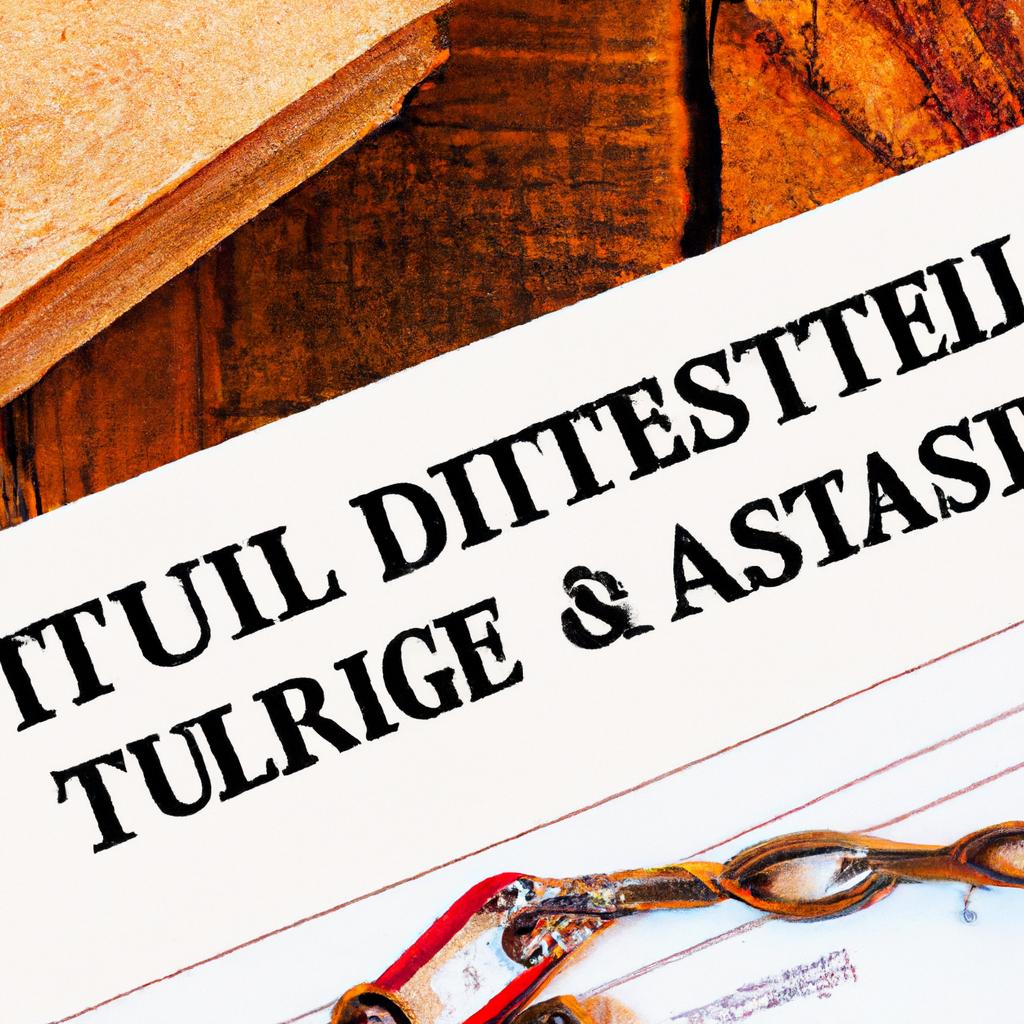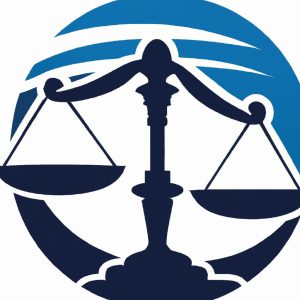In the complex and ever-evolving realm of estate planning and asset management, the concept of ‘acessicated trust’ stands as a pivotal point of discussion and analysis. As experienced legal professionals at Morgan Legal Group in New York City, we understand the intricate nuances and implications surrounding this unique trust arrangement. In this article, we delve into the depths of acessicated trust, shedding light on its intricacies and offering valuable insights for those navigating the intricate landscape of wealth preservation and distribution. Join us as we unravel the layers of this complex legal concept and explore its relevance in contemporary estate planning strategies.
Recognizing the Signs of Accesitated Trust in Estate Planning
When it comes to estate planning, it is essential to be aware of the signs of acessicated trust. One of the key indicators of acessicated trust is a lack of transparency in the trust agreement. This could include unclear language or provisions that are difficult to interpret. Additionally, if the trustee exhibits secretive behavior or fails to communicate openly with beneficiaries, it may be a red flag that the trust is being acessicated.
Another sign to watch out for is the misuse of trust assets. If the trustee is using trust funds for personal gain or deviating from the intended purpose of the trust, it could be a clear indication of acessicated trust. It is important to pay attention to any sudden changes in the administration of the trust or unexplained transactions. By staying vigilant and recognizing these signs early on, you can protect yourself and your loved ones from the consequences of a acessicated trust.

Addressing the Impact of Accesitated Trust on Probate Proceedings
When navigating probate proceedings, the impact of accessicated trust cannot be underestimated. The complexities that arise from a trust being accessicated can significantly prolong the probate process and create additional challenges for all parties involved. It is essential for individuals to understand the potential consequences of an accessicated trust on their estate plan and take proactive steps to address this issue.
One way to mitigate the impact of accessicated trust on probate proceedings is to engage in thorough estate planning with the guidance of a legal professional. By carefully examining the terms of the trust and identifying any potential areas of contention, individuals can work towards resolving conflicts before they escalate during probate. Additionally, ensuring that all relevant parties are aware of the trust and its implications can help prevent misunderstandings and streamline the probate process. Taking these proactive measures can ultimately help expedite the distribution of assets and minimize conflict among beneficiaries.

Strategies for Rebuilding Trust in Wills and Trusts
When it comes to rebuilding trust in wills and trusts, there are several key strategies that can be implemented to restore faith in the process. One important approach is to be transparent and open in all dealings with clients. This means providing clear and detailed information about the terms of the will or trust, as well as regular updates on any changes or developments. By being upfront and honest, you can help to reassure clients and demonstrate your commitment to their best interests.
Another effective strategy for rebuilding trust in wills and trusts is to focus on building strong relationships with clients. This means taking the time to truly understand their individual needs and concerns, and working closely with them to develop a plan that meets their specific goals. By listening carefully and showing empathy, you can help to create a sense of trust and confidence in your abilities as a legal professional.

Navigating the Legal Implications of Accesitated Trust in Elder Law
In the realm of elder law, navigating the legal implications of a acessicated trust is crucial for protecting the assets and interests of elderly individuals. An acessicated trust is a legal tool that allows a trustee to manage the assets of a vulnerable person who may not be able to make sound financial decisions on their own. This type of trust can provide peace of mind for both the elderly individual and their loved ones by ensuring that their assets are protected and managed responsibly.
When it comes to acessicated trusts, it is essential to consult with a knowledgeable attorney who specializes in elder law. An experienced lawyer can help you understand the complex legal requirements and implications of setting up and managing an acessicated trust. By working with a legal professional, you can ensure that the trust is structured in a way that complies with state laws and protects the best interests of the elderly individual. Trust Morgan Legal Group to provide expert guidance and support in navigating the legal complexities of acessicated trusts in elder law.
Q&A
Q: What is dessicated trust?
A: Dessicated trust refers to a trust that has been depleted or drained of its assets, leaving it unable to fulfill its intended purpose.
Q: How does trust become dessicated?
A: Trust can become dessicated through mismanagement, financial instability, or unethical behavior by those in control of the trust’s assets.
Q: What are the consequences of dessicated trust?
A: The consequences of dessicated trust can include legal battles, loss of financial security for beneficiaries, and damage to the reputation of the trust’s administrators.
Q: How can dessicated trust be prevented?
A: Dessicated trust can be prevented through diligent oversight, sound financial planning, and ethical behavior by those entrusted with managing the trust.
Q: Is there a way to restore dessicated trust?
A: Restoring dessicated trust may be possible through legal action, restructuring of the trust’s assets, and implementing stronger oversight and controls. However, the process can be complex and time-consuming.
In Conclusion
In conclusion, the concept of desiccated trust serves as a reminder of the fragility of relationships and the importance of nurturing and maintaining trust. As we navigate the complexities of human connections, may we strive to keep our trust alive and thriving, lest it wither away into nothingness. Let us water the seeds of trust with honesty, communication, and integrity, so that it may grow strong and resilient. Only then can we truly reap the fruits of genuine and enduring relationships. Thank you for reading.
 Accessing trust is an important concept to understand in both personal and professional relationships. Trust is the foundation of any successful relationship and can be defined as the belief that a person or entity will act with honesty, integrity, and reliability. However, trust can be difficult to establish and maintain, especially in today’s world where skepticism and misinformation are prevalent. This is where the term “accessicated trust” comes in – a term that combines the words “access” and “trust” to refer to the process of gaining and maintaining trust in today’s digital age.
Accessing trust is an important concept to understand in both personal and professional relationships. Trust is the foundation of any successful relationship and can be defined as the belief that a person or entity will act with honesty, integrity, and reliability. However, trust can be difficult to establish and maintain, especially in today’s world where skepticism and misinformation are prevalent. This is where the term “accessicated trust” comes in – a term that combines the words “access” and “trust” to refer to the process of gaining and maintaining trust in today’s digital age.
What is acessicated trust?
Accessicated trust refers to the ability to gain and maintain trust in a digital environment. In today’s world, people are constantly bombarded with information and have access to a vast array of platforms, making it easy to spread misinformation and manipulation. This has led to people becoming more guarded and hesitant to trust others, especially in online interactions.
Accessicated trust is a term that recognizes the challenges of establishing trust in a digital world where authenticity and reliability can be easily compromised. It is the process of breaking through these barriers and achieving a genuine sense of trust in online relationships.
Why is it important?
In both personal and professional relationships, trust is crucial for building and maintaining a strong connection. Trust allows people to feel secure, communicate openly, and work together towards a common goal. In today’s digital world, where a significant portion of our interactions happen online, the concept of trust has become even more critical.
Accessicated trust is crucial for online businesses and organizations as it impacts customer loyalty, engagement, and ultimately, their bottom line. For example, if a website has a reputation for spreading false information or has been hacked, people will be hesitant to trust them and may avoid purchasing products or engaging with the website altogether.
How to accessicate trust?
Building trust in the digital world is not an easy feat. It takes time, effort, and consistency. Here are some practical tips to accessicate trust in your digital interactions:
1. Be transparent and authentic: People are more likely to trust individuals or businesses that are transparent and authentic. Be honest about your intentions and actions, and avoid trying to deceive or manipulate others.
2. Communicate openly and effectively: In online interactions, communication is key. Be mindful of how your words and actions may be perceived by others, and strive for clear and effective communication.
3. Keep your promises: Nothing destroys trust faster than broken promises. If you make a commitment, follow through with it. This shows reliability and integrity, which are essential for building trust.
4. Protect personal information: In today’s digital age, personal information is valuable and must be protected. For online businesses, this means having secure websites and following privacy regulations. For individuals, this means being cautious of what information you share online and with whom.
5. Consistency is key: Building trust takes time, but maintaining it is an ongoing process. Be consistent in your actions and behavior, as this will help establish a sense of reliability and stability.
Case study: Trust in online reviews
One area where accessicated trust plays a significant role is in online reviews. With the rise of e-commerce, online reviews have become an essential tool for customers to make purchasing decisions. However, with the increasing prevalence of fake reviews, it has become challenging to trust the legitimacy of these reviews.
A study by BrightLocal found that 91% of people read online reviews when searching for a local business, and 84% trust online reviews as much as personal recommendations. This puts the responsibility on businesses to prioritize building and maintaining trust through genuine reviews.
Practical tips for businesses:
1. Encourage honest reviews: Encourage your customers to leave honest reviews, whether positive or negative. This shows transparency and that you value their feedback.
2. Respond to reviews: Engage with customers who leave reviews, whether it’s to thank them for a positive one or address any concerns in a negative review. This shows that you are listening and willing to improve.
3. Don’t fake it: Resist the temptation to leave fake reviews for your business or pay others to do so. This can damage your credibility and trust in the long run.
In conclusion, accessicated trust is a vital concept to understand in today’s digital age. Building and maintaining trust is essential for both personal and professional relationships, and it requires transparency, consistency, and authenticity. By following these tips and being mindful of how our actions may be perceived by others, we can accessicate trust and establish genuine connections in the digital world.






